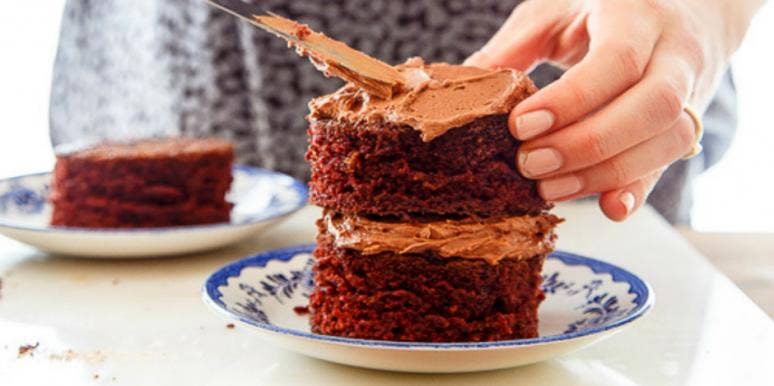
Dreams really do come true.
Remember when you were a little kid and you loved chocolate so much you wanted it for dinner? Chocolate cake for dinner or for any meal was a definite no-no. If you were lucky and finished your vegetables, maybe you might get a piece of chocolate cakes online, but most of the time that only happened when it was someone's birthday.
You might have thought to yourself, "When I grow up I'm going to have chocolate cake for breakfast, lunch, and dinner." Well, the dream of eating chocolate for breakfast can happen; in fact, new research suggests that you should.
Although we keep hearing that chocolate is good for us, it's difficult to believe that something so delicious and sweet should actually be part of a healthy diet. We know that the consumption of chocolate helps our cognitive function; in other words, it helps us to stay sharp.
A study from Tel Aviv University in Israel found that eating cake for breakfast helps dieters keep their weight off.
For the study, researchers had 193 obese adults — half of whom were randomly assigned to consume large, 600-calorie breakfasts that included a dessert item, such as a cookie, cake or donut. The other half of the participants were told to eat small, 300-calorie breakfasts.
Both groups had the same number of calories per day: 1,600 calories for men and 1,400 calories for women. The group who ate the big breakfast had a smaller calorie (300-400) total for dinner.
After 16 weeks of adhering to the diet, both groups lost approximately the same amount of weight. However, during the follow-up period of the study, it was suggested that participants continue to follow the diet, though they could eat more calories if they were motivated by hunger cravings.
The small breakfast group gained 24 pounds, while the big breakfast group lost 15 pounds on average — proving once again that breakfast really is the most important meal of the day. And even more interesting was the fact that those who ate the big breakfast with dessert experienced lower levels of ghrelin (a hormone that stimulates appetite) and had fewer food cravings than those who ate the small breakfast without dessert.
"The dessert usually decreases the carb craving later in the day," said the study's lead author, Dr. Daniela Jakubowicz. Dr. Jakubowicz is the author of the bestseller, The Big Breakfast Diet, and said, "When you wake up, your brain needs energy immediately. This is the time of day when your body converts food into energy. Later in the day, when you eat, your body and brain are still in high-alert mode, saving the energy from food as fat reserve. This is how you gain weight even eating less."
When we're on a diet, we naturally get hungrier, our ghrelin levels rise, and there's a decrease in our metabolism. A large breakfast that includes protein, carbs, and something sweet may help to neutralize these changes so people are able to stay on their diet for longer and maintain their weight loss.
Of course, constantly eating refined sugar and flour isn't good for anybody, so you can have your occasional piece of cake for breakfast, just don't make a regular habit of it.
Cake for breakfast will not only help your diet but will make your inner child smile.

No comments:
Post a Comment